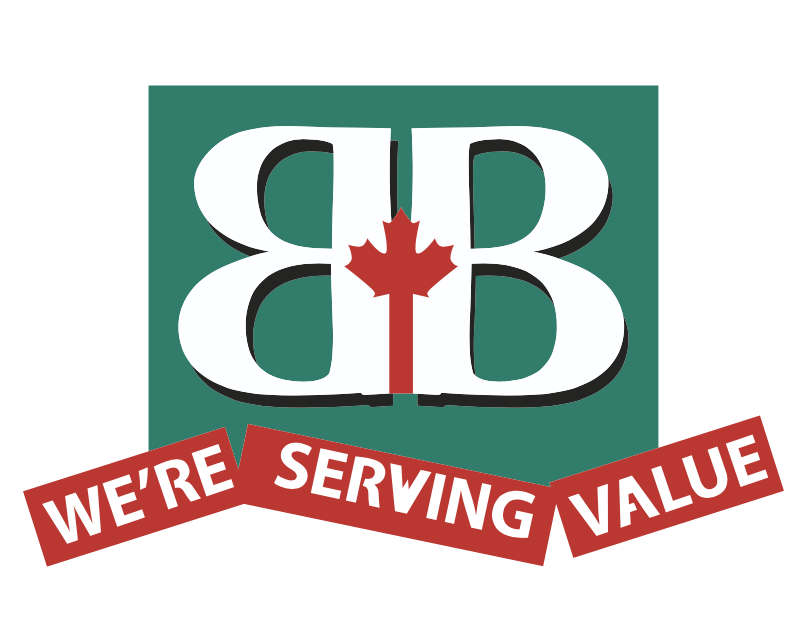Are you wondering if using food as a reward is a good idea? Well, let’s take a moment to consider the potential consequences.
Using food as a reward can have detrimental effects on your health and eating habits, especially for children. It may lead to a stronger desire for unhealthy foods and a poor overall diet.
However, there are alternatives to using food as a reward. Instead, you can offer tangible objects or experiences, provide affection and emotional support, and focus on teaching alternative strategies for rewarding behavior.
By promoting a healthy relationship with food and avoiding its use as a tool for behavior control, you can foster a positive and balanced approach to eating.
The Effects of Using Food as a Reward
Using food as a reward can have detrimental effects on your health and eating habits. While it may seem like a harmless practice, research suggests that using food as a reward, especially for children, can lead to a range of negative consequences.
For starters, using food as a reward can result in a heightened desire for high-fat, high-sugar foods. This is because when we use food as a reward, we tend to associate it with positive emotions, making us more likely to crave these types of unhealthy foods in the future.
Additionally, regularly using unhealthy foods as rewards can contribute to a poor diet overall, leading to an increased risk of overweight and obesity. Furthermore, using food as a reward can also lead to overeating when it’s freely available, as it reinforces the idea that food is a source of comfort or gratification.
Therefore, it’s important to consider alternative non-food rewards to promote healthy eating habits and maintain good health.
Alternatives to Using Food as a Reward
Consider incorporating alternative rewards that don’t involve using food. Using food as a reward can have negative consequences, such as the development of an emotional crutch and an increased liking for reward foods. Instead, try offering real, tangible objects or experiences as rewards.
Here are three alternatives to using food as a reward:
- Give your child a small toy or a book they’ve been wanting.
- Plan a special outing or activity, like a trip to the park or a movie night.
- Offer praise and recognition for their achievements or good behavior.
Impact of Using Food as a Reward on Children’s Eating Habits
Using food as a reward can have long-term effects on children’s health by promoting a preference for unhealthy foods and contributing to overweight and obesity. Instead of using food rewards, there are alternatives that can be effective in motivating children, such as non-food rewards or praise.
Additionally, the psychological impact of using food as a reward can affect children’s relationship with food, potentially leading to emotional eating or a distorted view of food as a source of comfort or validation.
Long-Term Effects on Health
Using food as a reward can have detrimental long-term effects on your child’s eating habits and overall health. The practice of using food as a reward is associated with a range of negative outcomes that impact a child’s long-term well-being. Here are three key long-term effects on health:
- Increased desire for unhealthy foods: When food is used as a reward, children develop a heightened desire for high-fat, high-sugar foods. This can lead to a poor diet and an increased risk of overweight and obesity.
- Incorporation of unhealthy foods into everyday diet: Regularly using unhealthy foods as rewards can lead to these foods becoming a regular part of a child’s everyday diet. This can have long-term consequences for their health, contributing to poor nutrition and an increased risk of chronic diseases.
- Decreased liking for non-reward foods: Using food as a reward can decrease a child’s liking for non-reward foods. This can result in a limited variety of healthy foods in their diet, impacting their long-term eating habits and overall health.
It is important to consider alternative rewards that promote healthy behaviors and positive habits, rather than relying on food as a reward.
Alternatives to Food Rewards
One alternative to using food as a reward for children’s desired behaviors is to offer them non-food incentives. Using non-food rewards can help prevent the negative impact of using food as a reward on children’s eating habits.
When parents rely on food as a reward, it can create a sense of parents controlling the child’s intake and lead to an unhealthy relationship with food. By offering non-food incentives such as stickers, extra privileges, or special activities, parents can still reinforce positive behaviors without relying on food.
Additionally, praising and acknowledging a child’s efforts and achievements can be an effective non-food reward. These alternatives can help promote healthier eating habits and prevent the development of emotional eating patterns, contributing to the long-term well-being of children.
Psychological Impact on Children
You should be aware of the psychological impact on children when food is used as a reward for their eating habits. Using food rewards can have unintended consequences on children’s eating habits and overall psychological well-being. Here are three key points to consider:
- Heightened desire for unhealthy foods: When food is used as a reward, children may develop a preference for high-fat, high-sugar foods. This can lead to a poor diet and an increased risk of overweight and obesity.
- Problematic associations with food: Using food as a reward can decrease a child’s liking for non-reward foods. This can create an unhealthy relationship with food and make it difficult for children to develop a balanced and varied diet.
- Emotional crutch and reliance on food: Using food as a reward can result in children using food as an emotional crutch. This can lead to emotional eating and an increased liking for reward foods, further perpetuating unhealthy eating habits.
Considering these psychological impacts, it’s important to explore alternative strategies for rewarding children that don’t involve food. Providing non-food rewards, such as tangible objects or experiences, and offering affection and emotional support can be healthier and more beneficial for children’s overall well-being.
Long-Term Consequences of Using Food as a Reward
When you rely on food as a reward, it can have long-term consequences on your health and well-being. Using food as a reward may lead to the development of unhealthy food habits in the longer term. This is because when you consistently associate food with rewards, it can create a heightened desire for high-fat, high-sugar foods. These foods tend to be unhealthy and can contribute to a poor diet.
Regularly using unhealthy foods as rewards can also increase the risk of overweight and obesity. Additionally, relying on food as a reward can lead to overeating when these foods are freely available, making them a regular part of your everyday diet. This can result in the development of emotional eating patterns and a preference for unhealthy, high-calorie foods.
Therefore, it’s important to consider alternative rewards that promote healthier habits and behaviors.
Psychological Effects of Using Food as a Reward
Using food as a reward can have psychological effects that are worth considering. One consequence is emotional eating, where individuals may develop a habit of turning to food for comfort or as a coping mechanism. This can lead to an unhealthy relationship with food and contribute to weight gain or other negative health outcomes.
Exploring alternatives to food rewards and understanding the long-term behavior patterns associated with using food as a reward can help promote healthier habits and well-being.
Emotional Eating Consequences
The psychological effects of relying on food as a reward can include an increased likelihood of emotional eating behaviors. When food is consistently used as a reward, it can create an unhealthy association between emotions and eating. Here are three consequences of using food as a reward:
- Emotional overeating: When food becomes a reward, it can lead to emotional overeating, where individuals turn to food to cope with their emotions. This can result in consuming larger amounts of food than necessary, leading to weight gain and potential health issues.
- Binge eating: Using food as a reward can also contribute to the development of binge eating behaviors. The act of restricting oneself from certain foods and then rewarding with them can trigger episodes of uncontrollable eating, often accompanied by feelings of guilt or shame.
- Emotional dependence on food: Relying on food as a reward can create an unhealthy dependence on food for emotional satisfaction. This can lead to using food as a primary source of comfort and pleasure, making it challenging to develop alternative coping mechanisms for dealing with emotions.
Understanding the emotional eating consequences of using food as a reward highlights the importance of finding healthier ways to reward ourselves and our children.
Alternatives to Food Rewards
To mitigate the psychological effects of relying on food as a reward, consider exploring alternative ways to reward yourself or your child. Using non-food rewards can be just as effective and beneficial.
Instead of offering food as a reward, you can consider offering real, tangible objects or experiences. For example, you can reward your child with a toy, a special outing, or extra time doing something they enjoy. These alternatives can still provide a sense of accomplishment and pleasure, without the negative associations and potential emotional crutch that can come with using food as a reward.
Long-Term Behavior Patterns
Consider exploring alternative ways to reward yourself or your child, as relying on food as a reward can have long-term behavior patterns that impact eating habits and weight status. Using food as a reward may seem harmless in the moment, but it can lead to negative psychological effects that persist over time. Here are three ways in which using food as a reward can affect behavior patterns:
- Emotional Overeating: When food becomes a reward for good behavior, it can create an unhealthy emotional attachment to food. This can lead to using food as a coping mechanism for stress or other negative emotions, resulting in overeating and weight gain.
- Picky Eating: Using food as a reward can reinforce picky eating habits in children. They may become more focused on the reward rather than the nutritional value of the food, leading to a limited and unbalanced diet.
- Unhealthy Food Preferences: When food is consistently used as a reward, it often involves high-fat, high-sugar foods. This can lead to a heightened desire for unhealthy foods and a preference for them in everyday eating habits.
Strategies for Breaking the Food-Reward Cycle
You can break the food-reward cycle by implementing effective strategies.
One strategy is to educate parents and caregivers about the risks of using food as a reward. By understanding the potential negative impact on children’s health and relationship with food, parents can make healthier choices.
Another strategy is to offer non-food rewards such as stickers, extra privileges, or special activities. These rewards can be highly effective in promoting positive behavior without relying on food.
Creating a reward system based on earning points or tokens for desired behaviors is another effective approach. This helps break the habit of using food as a reward and encourages children to focus on their actions rather than the food itself.
Additionally, encouraging children to set personal goals and rewarding their progress with non-food items can promote a healthier relationship with rewards.
Collaborating with schools and community organizations to promote non-food rewards can have a broader impact on children’s well-being.
Promoting Healthy Relationships With Food
- Establish a clear understanding of healthy relationships with food.
To promote healthy relationships with food, it’s important for parents to establish a clear understanding of what it means to have a healthy relationship with food. Here are some key points to consider:
- Education: Educate yourself and your children about the importance of balanced nutrition and the benefits of eating a variety of foods.
- Role modeling: Be a positive role model by demonstrating healthy eating habits and attitudes towards food.
- Encourage intuitive eating: Teach children to listen to their body’s hunger and fullness cues, and to eat when they’re hungry and stop when they’re satisfied.
Frequently Asked Questions
Should Food Be Used as a Reward or Punishment?
You should reconsider using food as a reward or punishment. It can have unexpected impacts and lead to less desirable outcomes. It may also increase cravings for unhealthy foods and contribute to a poor diet.
Why Not to Use Food as a Reward for Children?
Using food as a reward for children can lead to long-term negative effects. It can increase their desire for unhealthy foods and decrease their liking for other nutritious options. Instead, focus on alternative strategies and offer affection and emotional support.
Is Food a Natural Reward?
Food is a natural reward because our liking for sweet foods is present from birth. Children who display food approach behavior are more likely to be rewarded with food by their parents, indicating a natural inclination to use food as a reward.
Why Does Food Feel Like a Reward?
Food feels like a reward because it activates pleasure centers in your brain. Sweet and fatty foods release dopamine, creating a sense of pleasure and satisfaction. This natural response can make you crave food as a reward.
Conclusion
In conclusion, using food as a reward can have negative effects on children’s health and eating behavior.
It’s important to consider alternative methods of reward such as tangible objects or experiences, affection, and emotional support.
By promoting a healthy relationship with food and avoiding its use as a tool for behavior control, we can help children develop positive eating habits and avoid the long-term consequences of using food as a reward.







